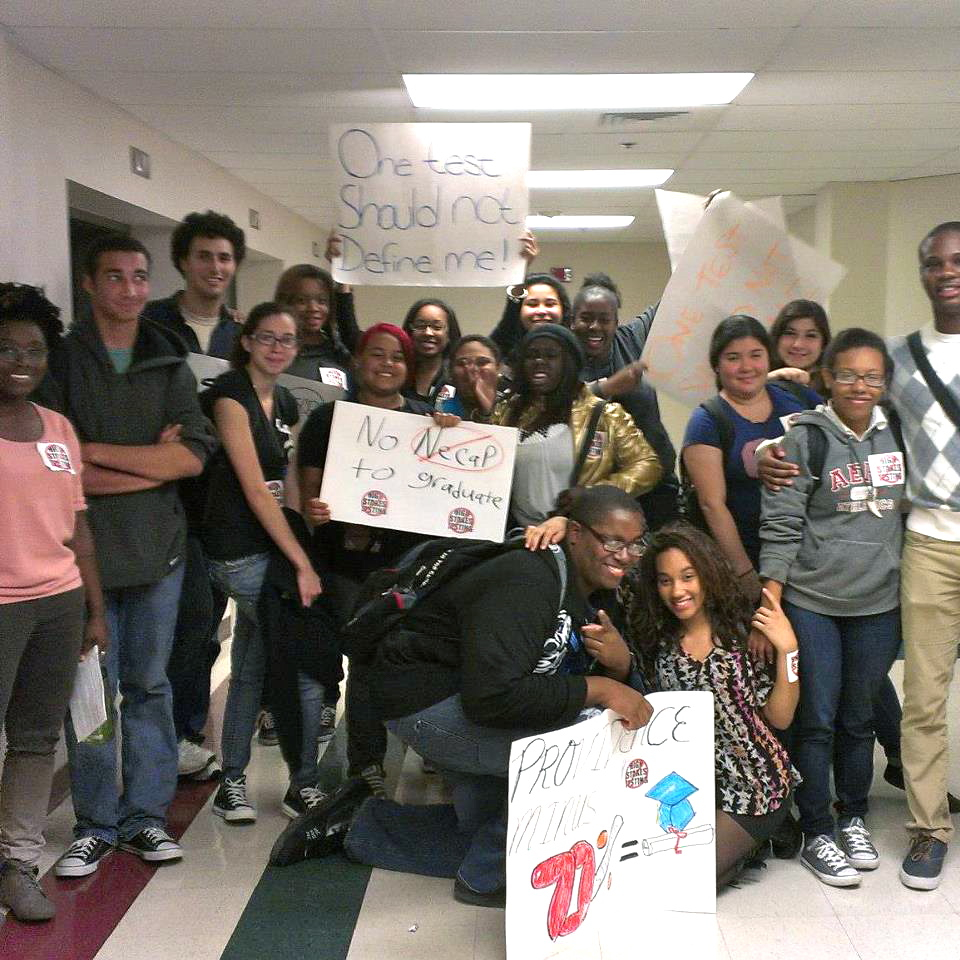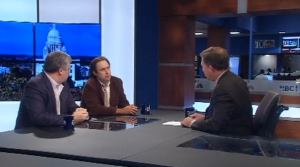 Some right-leaning people I know on the Twitter were confused about how the government shutdown actually “cost” money. I put that word in quotes because accounting in giant, complicated organizations is complicated, unsurprisingly. In this essay, I’ll use the hackneyed government-as-a-business analogy to attempt to explain how this seemingly counterintuitive result occurred.
Some right-leaning people I know on the Twitter were confused about how the government shutdown actually “cost” money. I put that word in quotes because accounting in giant, complicated organizations is complicated, unsurprisingly. In this essay, I’ll use the hackneyed government-as-a-business analogy to attempt to explain how this seemingly counterintuitive result occurred.
I will not say too much about the relative wisdom of the decisions made by the people running this ersatz business, but I’m sure the comments will be rife them. There’s been quite a lot of stupid in that area (decisions, not comments). The point here is to create a framework for understanding how government works in the day-to-day, dollars-and-cents world we like to call “reality.”
To be sure, I’m not an accountant nor do I have deep knowledge of the specifics of which departments cost what on the expense side or contribute what on the revenue side or even which are considered “non-essential.” But regular readers know that that never stopped me before.
However, I do have a fair amount of experience at senior levels in large organizations, and I have a solid working knowledge of government. Hokay? Let’s see how this works.
In very, very brief, the shutdown closed our government/business’s retail stores and furloughed much of the admin and all of the sales force. Retail income went to zero. On the cost side, any savings on salaries were swamped by the unplanned costs of shutting and securing the stores and furloughing all the workers. The result was an estimated $3 – 4 billion in unrealized revenues and direct shutdown/startup costs. We won’t know until we can get a complete accounting. To make that up, each of the 300 million in the US must pay at least $10 for the 16 days closed.
Feel better? I didn’t think so.
The Basics: A Budget is a Plan
In a business, the budget is called the AOP – the anticipated operating plan. Businesses with fiscal years that align with the calendar year are working these out right now for 2014. The reality is that you really don’t know how much you’ll sell and how much you’ll spend on making and selling that stuff until it’s already happened. Hence the word “anticipated;” this is what we expect to happen.
At the end of the period – usually the month – you tally actual sales against actual costs and compare them to the AOP. If necessary, you adjust one or both sides of the ledger and move forward. Managers are judged on the accuracy of the predictions in the AOP, quality of execution of aspects of the AOP and their ability to adjust based on actual results.
If sales fall short, then you’ll need to cut back on the expense side. If sales are better than expected, you’ll have extra cash for expansion. Sometimes, light sales don’t result in expense cuts if a business thinks it’s investing wisely in something that will provide a return later on.
The reality is that when sales fall short and expenses need to be cut, the cuts almost always come from the admin, customer service, marketing and sales lines. These lines are, literally, closer to the bottom line and therefore considered more discretionary in nature. Ads can be cancelled, tradeshows cut back, sales trips postponed, admin workers laid off; this sort of thing. Often, cutting back on marketing and sales produces even weaker sales and the company enters a death-spiral.
Lines that are higher up the profit-and-loss report, like R&D, overhead and especially cost-of-goods-sold, is money already spent and/or essential to the enterprise. Along with accurately forecasting sales, rightly predicting these costs is the essence of generating a profit in a complicated organization.
The Government is not a Business
Even though I’m going to use this analogy, it has severe limits that really ruin things – like the country – if you take this too far. For example, no business is responsible for the roads and bridges that let them move people and things between supplier, factory and market. That’s the government’s job, and it’s a big one.
Likewise, no business is responsible for the total environmental impact of all businesses. Each business is responsible for its own impacts, allegedly, but only the government is tasked with ensuring clean air and water for everybody.
Finally, the government, unlike a business, has only a small amount of choice about what activities it should become involved in. Businesses can change their plans with great autonomy or even “pivot” from one market to another, but the federal government is constrained by the US Constitution to provide a range of services.
The “mission statement” for the US government is right there for anybody to read; it’s the preamble to the Constitution. “We, the people, in order to form a more perfect union…”
So there’s that.
Hypothetically, Though, Let’s Say…
All that notwithstanding, let’s say the government were a large corporation that sells goods and services to a mostly national market. At the broad-brush level, this is fairly accurate, IMO. This business has numerous factories, R&D facilities, offices, data centers and other sites mostly in the US. It makes and sells lots of different products and services that it designs. It has an internal sales force for wholesale markets but also a large number of retail stores.
Now let’s say that there’s a giant battle among the directors about what the AOP should look like for FY2014. Furthermore, let’s say that the minority faction is unhappy about a decision the board of directors made under the legitimate rules of business. Because they can, this minority faction “closes the company” to try to get the majority to reverse its decision in order to save the enterprise.
Well, not really close the company. More like force some draconian measures that suspend all “non-essential activities”. To the markets it serves, the company is effectively shut, but internally, it does what it needs to do to ensure that it can reopen. Obviously, this means laying off a lot of the admin people, all the sales and marketing people and closing all the retail stores.
This minority does not want to destroy the company, so the overhead costs remain fairly steady. For example, they don’t disconnect the alarms at the retail stores. In fact, they have to hire extra security. And they keep the heat on at the main sales office so the pipes don’t freeze and ruin all the computers.
The minority expects the company to reopen, so they scale back at the factories but don’t close all of them entirely. Closed or not, those factories require continuous maintenance.
And especially, they don’t cut back on the R&D projects that almost all of them consider to be absolutely essential the company both today and into the future.
After a few weeks, the minority has inflicted a lot of pain on the company but not destroyed it entirely. They relent, and all the sales and marketing people get called back and the stores reopen.
At the end of the month, it turns out that the shutdown didn’t save any money at all. In fact, it caused a pretty big deficit.
Why the Shutdown Cost $3 – 4 Billion
In this oversimplified analogy, it’s pretty easy to see why the shutdown cost this company money. They cut income from sales plus receivables to just receivables. Only it couldn’t receive the receivables because accounts receivable got laid off. But it still had to pay for overhead, whatever admin they retained, materials for the factories that were still open and those big R&D projects.
The 21-day shutdown in 1995-96 cost $2.1B in direct costs. Given inflation, changes in revenue sources and overall growth of the government, back-of-the-napkin estimators on the White House Council of Economic Advisors expect to see at least $3 billion in unplanned costs and lost revenues. National parks, for example bring in about $76 million a day in fees and sales.
The Government Shutdown as a Government Shutdown
To unlock this analogy, the “non-essential” government offices that closed were the same ones that generate a lot of the retail revenue. National parks, for example, generate real revenue from tourists. Regulatory bodies generate real revenue from application fees.
And they should. Freedom isn’t free. (Neither are elections, but that’s another story!) In fact, people on the right are constantly talking about “running the government like a business.” That means charging fees for services.
***At this point I want to reiterate that this essay is _NOT_ about discussing the fine points of how much the government should charge or what services it should provide. The point is to lay out a broad-brush framework that explains how the government behaves as a fiscal entity and why the unrealized revenue expected in the AOP counts as a loss.***
On the costs side, very little changed. Even a shutdown EPA still needs to be heated/cooled to protect the building and stuff in it. Even a closed office building uses a lot of energy.
Nor did the NSA stop its work, and that ain’t any kind of free. As a genuine inquiry, did all the NSA contractors from Booz-Allen get their checks?
Something else that didn’t shut down – the war machine. Zero drone flights got cancelled. Zero operations got cancelled. In fact, elite forces undertook to smash-and-grabs, er, extraordinary renditions during the shutdown.
In my analogy, these are the absolutely essential R&D projects. (Essential, according to the board of directors, not me.)
Conclusion
When you prevent yourself from bringing in revenue but leave your costs essentially unchanged, you run red ink. It’s just that simple. Again, the analogy is flawed. Some real R&D at NIH got shut down and perhaps the war machine is better analogized with our businesses’ factories.
The fact is that _actually_ closing the government would be so great a shock to our economy and our society that almost no politician in Congress or the White House would do such a thing. Indeed, they are mission-constrained to:
- Form a more perfect union
- Establish justice
- Insure domestic tranquility
- Provide for the common defense
- Promote the general welfare
- Secure the blessing of liberty on ourselves and our posterity
I do not see how the shutdown served any of these aims.
Correction
The original version of this essay mistakenly used the estimated $24B cost to the US economy as the direct cost to the government. I apologize for the error.
 RI Future: When you ran for office, your letter says you have a “commitment to the economic sustainability of families.” What does “economic sustainability” look like for you?
RI Future: When you ran for office, your letter says you have a “commitment to the economic sustainability of families.” What does “economic sustainability” look like for you?


































